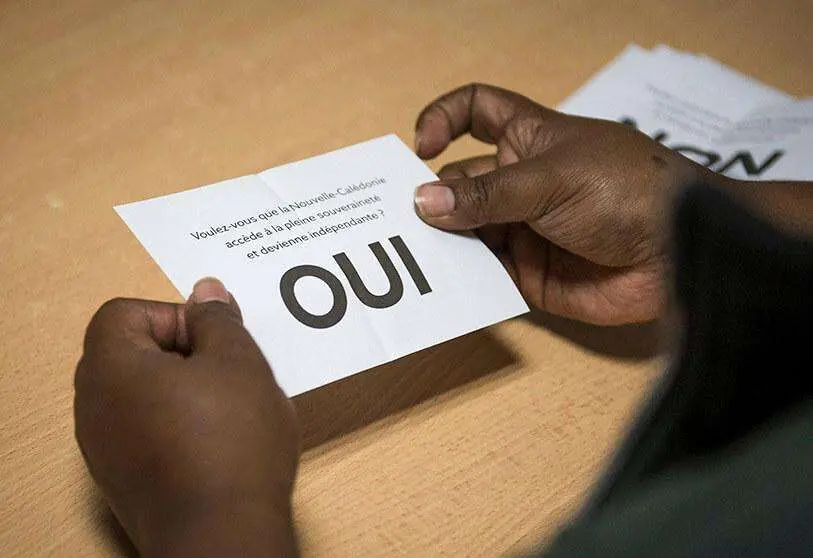New Caledonia will remain French

The independence referendum held on Sunday in New Caledonia ended with a resounding "no" at the ballot box. After the three maximum attempts agreed with Paris, voters have once again pronounced themselves, and this time more overwhelmingly, in favour of the archipelago remaining French.
In the previous votes, held in 2019 and 2020, the result had already given a majority to the "no" against the "yes" advocated by the pro-independence supporters, but with a more even result. This time it was more overwhelming: 96% voted against and only 3.5% in favour.
The turnout reflected the population's weariness with this dilemma, which in recent times had lost ground in public opinion. Abstention was much higher than in previous editions (49%), which is the argument of pro-independence supporters who in recent weeks have been against the referendum.
Security reinforcements around the polls deployed from Paris provoked the rejection of pro-independence leaders who claimed that it was a form of coercion against the proposal. The question posed on the ballot paper was: "Do you want New Caledonia to gain sovereignty and become independent?
The 270,000 Kanaks, as the inhabitants of the western Pacific islands are known, have since 1998 enjoyed a large measure of autonomy, allowing them to govern themselves and maintain parliamentary representation in Paris. France keeps defence, justice and public order under its control.
In Paris, the government immediately expressed its satisfaction with the result. Although the prospects anticipated a defeat for secessionism, there was always the fear of a surprise. All parties, except the far-left party led by Melenchon, were in favour. President Macron was proud to announce that "New Caledonia will remain French".
The failure of the independence supporters is all the more significant if one remembers that this was the last referendum allowed to be held under the agreements adopted in 2018. Next spring, local elections will be held on the islands, and the government that emerges will be the one to negotiate with Paris the new status that should come into force in 2023.
In Nouméa, the Kanak capital, the failed independence fighters were devastated. The movement's leader merely commented on their resignation with these words: "We are back to square one".

